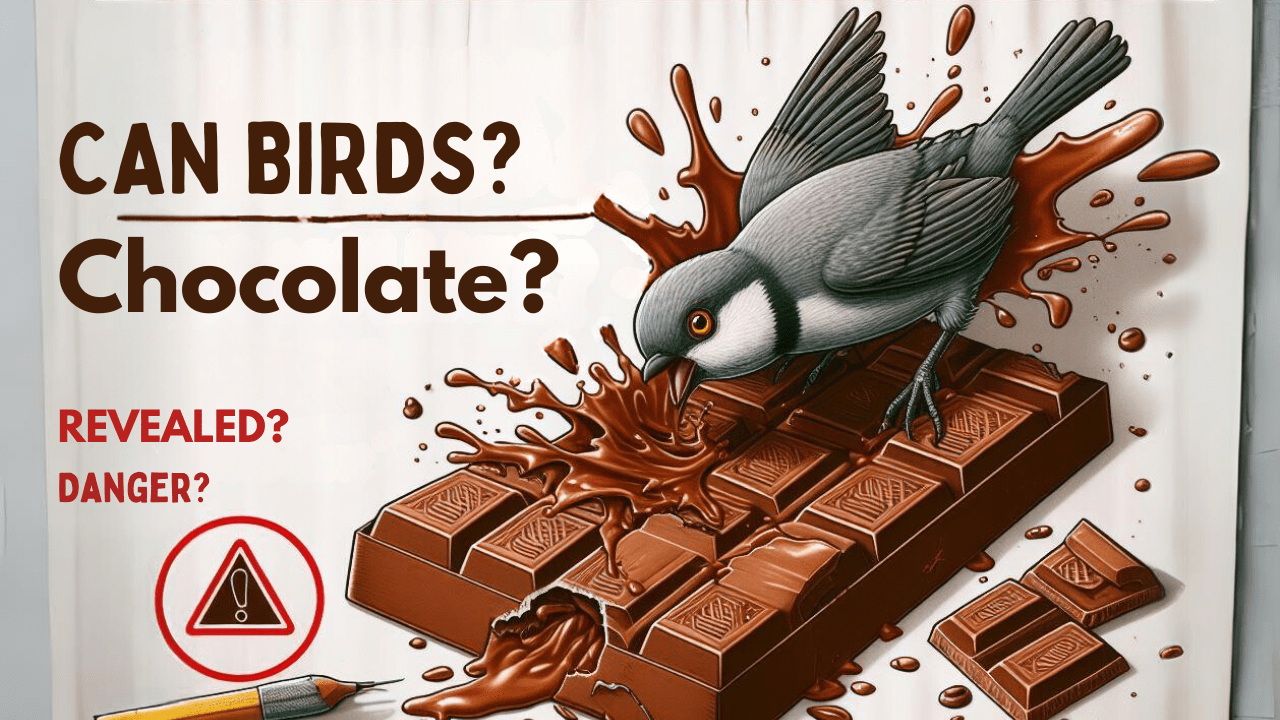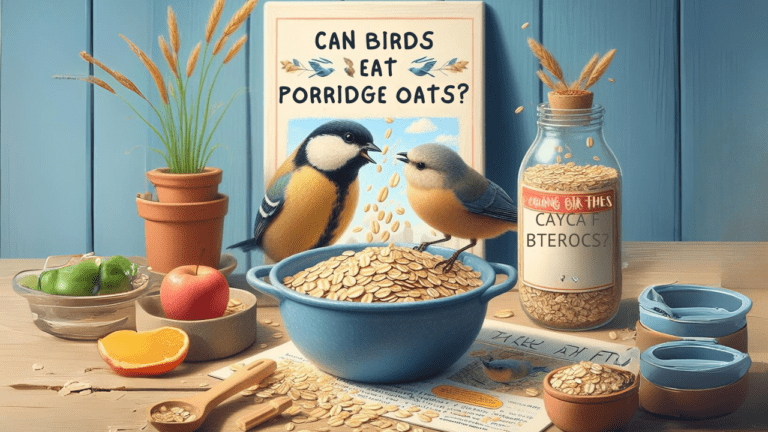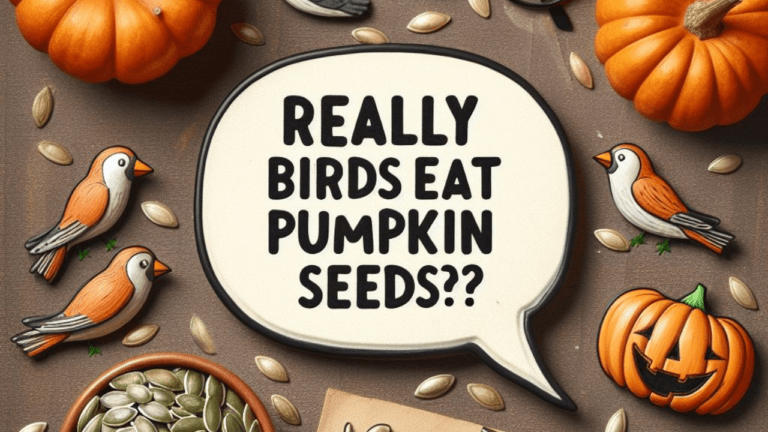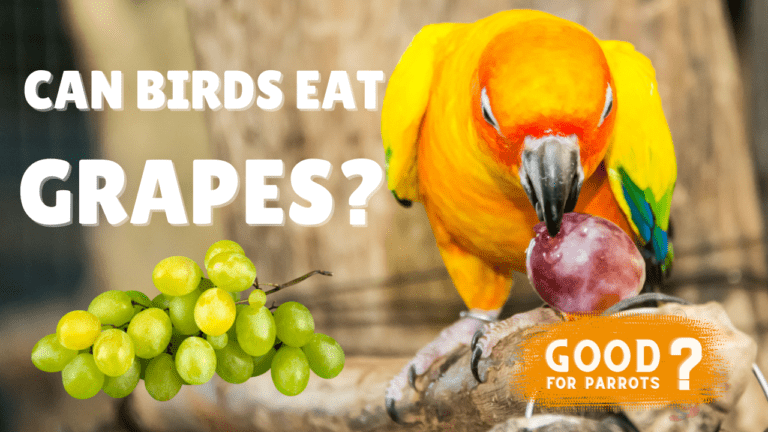You’ve probably heard that giving chocolate to your bird is harmless, but the truth about “Can Birds Eat Chocolate” might surprise you. While some think it’s okay, this blog uncovers the hidden risks.
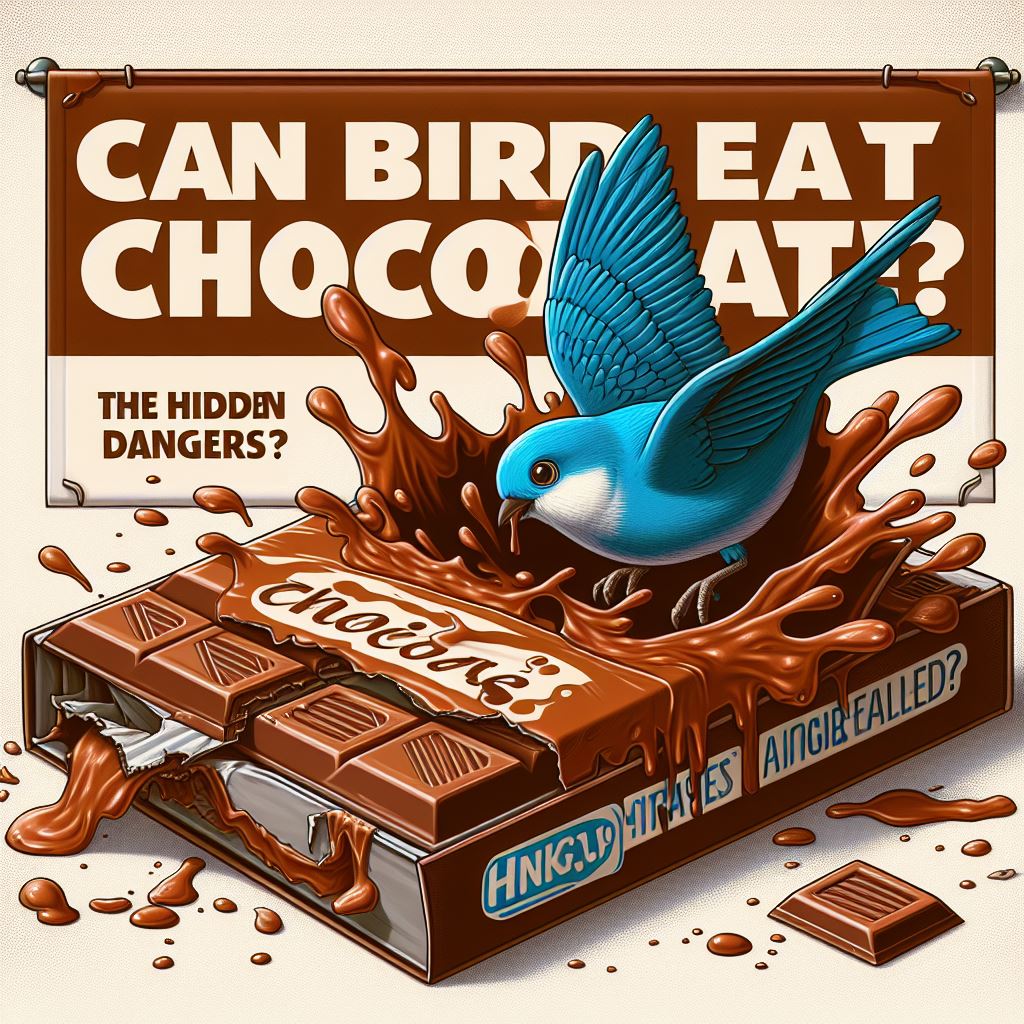
Understanding the Risks
Chocolate, a beloved indulgence for humans, contains compounds that can be highly toxic to birds. Theobromine and caffeine, found in varying amounts depending on the type of chocolate, are the culprits behind chocolate poisoning in birds. These substances can wreak havoc on a bird’s delicate system, leading to a range of health issues and potentially fatal consequences.
Why Chocolate is Harmful to Birds
Theobromine and caffeine, though relatively harmless to humans in moderate amounts, can spell disaster for our avian companions. Birds metabolize these compounds at a much slower rate than humans, meaning even a small amount of chocolate can quickly accumulate to toxic levels in their bloodstream. Once ingested, theobromine and caffeine interfere with a bird’s central nervous system, causing symptoms such as increased heart rate, tremors, seizures, and even death in severe cases.
Symptoms of Chocolate Poisoning in Birds

Identifying chocolate poisoning in birds can be challenging, as symptoms may vary depending on the type of chocolate consumed and the bird’s size and health. However, common signs to watch out for include vomiting, diarrhea, hyperactivity, difficulty breathing, and seizures. If you suspect your bird has ingested chocolate, it’s crucial to seek veterinary assistance immediately to minimize the risk of serious complications.
Alternatives and Prevention
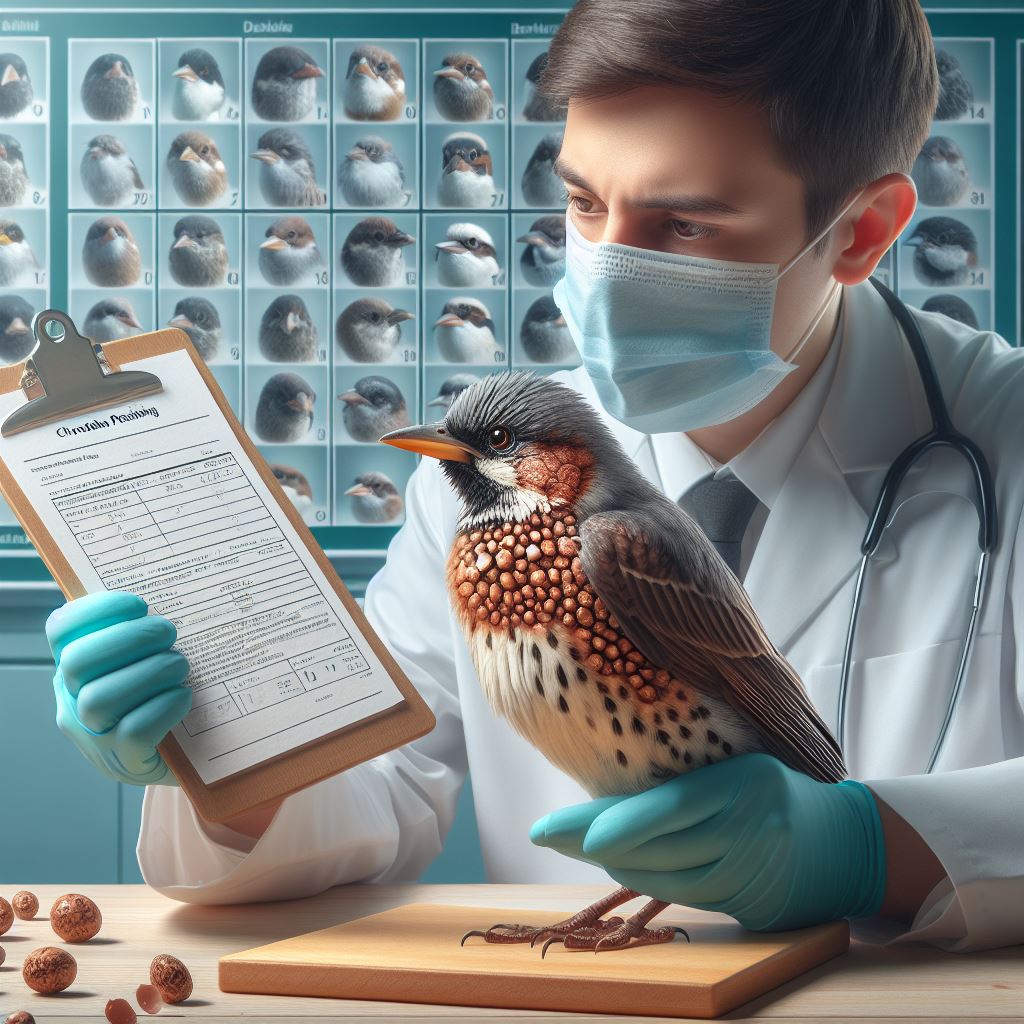
Fortunately, there are plenty of bird-friendly alternatives to chocolate that you can offer your feathered friend as treats. Fruits like bananas, berries, and melons, as well as vegetables such as carrots and snap peas, make excellent and safe options. Additionally, you can provide commercially available bird treats specifically formulated to meet your bird’s nutritional needs without the risk of toxicity.
When it comes to preventing chocolate poisoning in birds, vigilance is key. Keep all chocolate products securely stored in bird-proof containers and educate family members and visitors about the dangers of sharing chocolate with your feathered companion. By taking proactive measures to safeguard your bird’s health, you can enjoy peace of mind knowing they’re safe from harm.
In conclusion, while the idea of sharing a sweet treat with your bird may seem harmless, the risks far outweigh any perceived benefits. Chocolate, with its toxic compounds, poses a serious threat to the health and well-being of our avian friends. By understanding the dangers and taking proactive steps to prevent exposure, you can ensure your feathered companion enjoys a long and healthy life free from the perils of chocolate poisoning.
Why Chocolate is Harmful to Birds
Despite its popularity among humans, chocolate poses significant dangers to our feathered friends. While some may believe that a small nibble won’t hurt, the reality is that even a tiny amount of chocolate can have devastating effects on a bird’s health. Let’s delve deeper into why chocolate is so harmful to birds and why it’s essential to keep it far away from our avian companions.
The Toxicity of Chocolate
Theobromine and caffeine, two compounds found in chocolate, are the primary culprits behind its toxicity in birds. These substances are part of a group of chemicals called methylxanthines, which can have stimulant effects on the central nervous system. While humans can metabolize these compounds relatively quickly, birds metabolize them much more slowly, leading to their accumulation in the bloodstream and resulting in toxicity.
Effects on Bird Physiology
When a bird ingests chocolate, the theobromine and caffeine quickly enter their bloodstream and begin to exert their effects. These effects can vary depending on factors such as the type and amount of chocolate consumed, as well as the size and health of the bird. However, common symptoms of chocolate poisoning in birds include increased heart rate, hyperactivity, tremors, seizures, and, in severe cases, death.
Understanding Chocolate Poisoning Symptoms
Detecting chocolate poisoning in birds can be tricky since symptoms may resemble other ailments. If your bird shows sudden behavior changes or signs like vomiting, diarrhea, or breathing issues after ingesting chocolate, swift veterinary care is crucial. Quick intervention can alleviate “Can Birds Eat Chocolate” poisoning effects and boost your bird’s recovery prospects.
Bird-Friendly Alternatives and Prevention

Given the dangers associated with feeding chocolate to birds, it’s crucial to explore safer alternatives for treats. Fruits like apples, bananas, and berries, as well as vegetables such as carrots and peas, make excellent choices for bird snacks. Additionally, commercially available bird treats formulated specifically for avian dietary needs can provide a safe and enjoyable alternative to chocolate.
To prevent accidental chocolate ingestion, it’s essential to keep all chocolate products securely stored in bird-proof containers and out of reach of curious beaks. Educating family members and visitors about the dangers of sharing chocolate with your bird can also help prevent accidental exposure. By taking proactive measures to eliminate the risk of chocolate poisoning, you can ensure your feathered companion enjoys a long and healthy life free from harm.
In conclusion, while chocolate may be a delightful indulgence for humans, it poses serious risks to the health and well-being of our avian companions. By understanding the toxicity of chocolate and taking steps to prevent exposure, you can protect your feathered friend from the potentially devastating consequences of chocolate poisoning. Hope so you have got the answer, Can Birds Eat Chocolate ?
